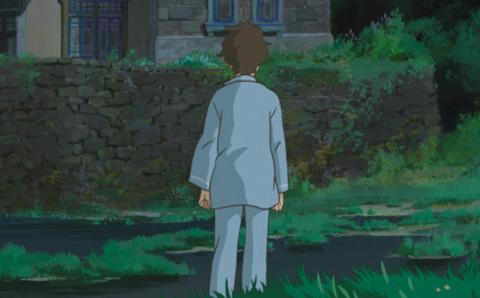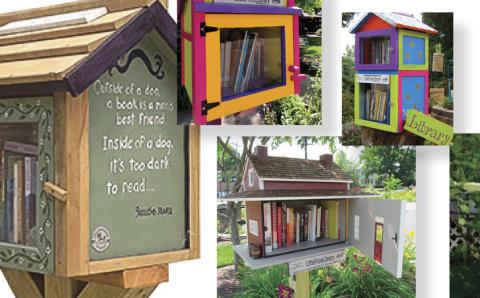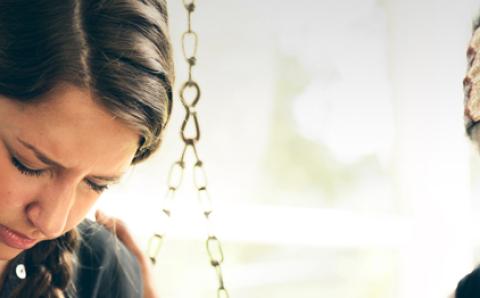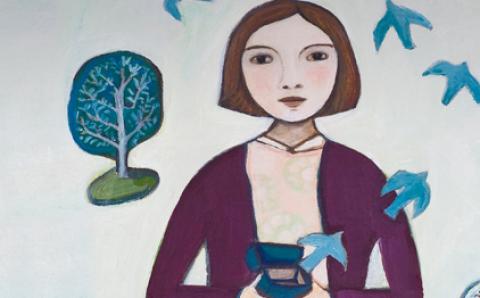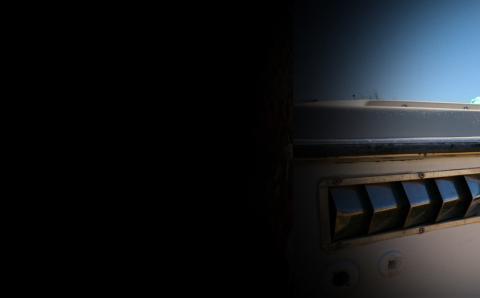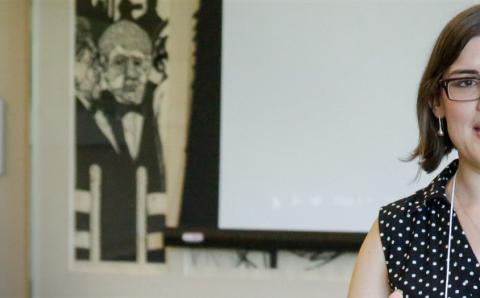“Give a man a fish and you feed him for a day. Teach a man to fish and you feed him for a lifetime.” This proverb has long been used to help people understand the best way to do charitable acts.
The point is that handouts alone cannot overcome chronic hunger. For that, you need to equip people with the skills they require to feed themselves.
World Renew has been the Christian Reformed Church’s arm for responding to disaster, hunger, and poverty for more than 50 years. During this time, World Renew staff have learned that there is a time for giving people fish, a time for teaching them to fish—and even a time for helping people gain better access to the pond and and to improved prices for the fish they catch.
While these projects can include everything from improved farming techniques, treadle pump irrigation, and composting latrines to urban savings groups, adult literacy classes, and HIV testing, some of the best examples actually do involve fish.
Giving People a Fish
As a rice farmer in the Philippines, Jose Wendell Jadlov struggled to provide for his family of five. In 2000, he decided to move to the coastal community of Barangay 89 to begin a new venture as a fisherman. Little did he know that this move would put him right in the path of Typhoon Haiyan in November 2013.
“I could catch fish and sell it at the market and make money every day, unlike when I was a rice farmer and only reaped the reward after three months,” he said. “I was happy because I had a better job.”
Then Typhoon Haiyan struck. In the hours before the storm, the Philippines government issued an evacuation warning to people living in coastal villages. Jadlov took his family and ran to an evacuation center.
“Corrugated iron sheets were flying through the air,” he recalled. “My children were afraid because the rain and wind were very strong. They were shouting and crying.”
When the storm died down, the family returned home, only to discover that they had lost everything—their house, boat, appliances, clothes, and keepsakes.
Through World Renew, Jose and his family received a cooking pot, dishes, a wash basin, and other materials to help them get by. They also participated in a cash-for-work program which gave them a short-term source of income to buy food and materials for a makeshift shelter. Without fishing gear, however, Jadlov had no long-term plan for supporting his family.
Then World Renew chose Jadlov and several other fishermen in the community for a livelihood program. These families were given new boats and fishing gear to help them restart their lost businesses.
“I can now support my family’s needs,” Jadlov said, looking at his new gear. “I now have hope for a better life for our future.”
Teaching People to Fish
While Jadlov needed immediate aid, other people need assistance that is more complex. Abdul Mannan in Bangladesh, for example, was struggling with chronic poverty as a way of life that was not the result of a natural disaster.
Like most of his neighbors, Mannan grew rice on a small plot of land but found it difficult to support his wife, three children, and elderly parents.
“I live in a small village, and I have very little land to live on or to farm,” he explained. “In the past, I could grow enough rice for perhaps eight months, but the other months I had to borrow from moneylenders at a very high interest. I could not afford to send my children to school, and we often went hungry for days.”
Through World Renew and its local Christian partner, PARI, Mannan has changed his life—not with handouts but with improved skills and hard work. PARI suggested that he build dykes around his field, flood the land to grow rice, and use this flooded rice paddy to farm fish at the same time as he grew rice, a technique known as inter-fishing.
“I learned how to choose rice varieties that thrive in water and how to protect the fish in my fields. Soon I was able to grow more rice and fish and earn money from selling them,” Mannan said, explaining that he earned 22,000 taka ($283) from his fish and 15,000 taka ($193) from rice this past year. PARI also showed him how to farm vegetables on the high dykes, which enabled him to earn another 3,000 taka ($38).
This training has greatly improved Mannan’s life. He now has vegetables for nutrition, fish for protein, and an increased source of income. His children are in school and have a better chance of escaping poverty. He has even saved enough money to build a latrine.
“I hope to lease another piece of land to start inter-fishing there,” he said. “I am sharing new learning with my neighbors and group members who are also eager to try new things. Now the future looks much brighter.”
Improving Access to the Pond
But what happens when people have the skills and the materials they need to improve their lives yet are prevented from achieving their goals by unfair systems, violence, and unjust laws? In these situations, Christian organizations like World Renew also have the opportunity to change lives for the better.
The Etulo people in Nigeria are primarily Christian. Most make their living as farmers or fishermen. Over many decades, groups of Etulo people have migrated from their ancestral homes in central Nigeria to places in the north in search of more fishing opportunities.
In 2013, however, their peaceful fishing way of life came under attack by way of persistent insurgency by militants in northern Nigeria. As Christians, these families were targeted with violence, kidnappings, bombings, and even murder. Many of the fishermen were killed; their wives and children soon fled en masse back to their ancestral homes.
One of the communities to which they fled is a small village called Adi. Their arrival put a lot of strain on the people already living there. There was more competition for food, jobs, and materials and more demand to provide shelter and food for relatives who were arriving.
World Renew used a grant from the Africa Widows and Orphans Support to assist 19 women in Adi who were affected by this violence. First, they provided the women with a biblically-based trauma healing course that helped them deal with their grief, understand the symptoms of post-traumatic stress, learn forgiveness, and develop conflict prevention skills.
Next, World Renew encouraged women to form savings groups and provided these groups with small business training and about $35 of start-up capital per person. As the women met together, they provided each other with encouragement and support to start small business ventures.
One woman decided to use her capital to start a dried fish business. Today, she sells a variety of dried fish at the local market and has peace as she thinks about her future.
Fish for Change
Your support of World Renew is used across the spectrum to provide emergency aid, long-term rehabilitation, skills development, trauma healing, and justice programs.
As a result, more than one million people each year are able to join Jose Wendell Jadlov in saying, “I am content and satisfied and am able to stand on my own two feet. Thank you, World Renew, for all of the help. God bless you!”
World Hunger Campaign
The 36th Annual World Hunger Campaign materials are now available. This year marks the 20th anniversary of using orange Peter Fish banks as part of the campaign. In honor of his birthday, Peter Fish has taken a global tour this year. Check out photos of his travels on Twitter at #PeterFishTravels or visit World Renew’s Facebook page.
You can also participate in this year’s “Fish for Change” World Hunger campaign. The campaign is rooted in Luke 9:16-17: “Taking the five loaves and the two fish and looking up to heaven, he gave thanks and broke them. Then he gave them to the disciples to distribute to the people. They all ate and were satisfied.”
By participating in the campaign, you and your congregation will be reminded that when we give of what we have—our time, our prayers, our talents, and our finances—God is able to multiply these resources. The resulting miracle is one where not just the poor but all people in the whole world are able to eat and be satisfied. To learn more, visit worldrenew.net/worldhunger.
—Kristen deRoo VanderBerg
Pray for World Renew
- Pray for World Renew’s response to the earthquake in Nepal, tornadoes in Texas, and the many other places where disaster survivors are in need of assistance.
- Thank God for the more than 3,000 people who volunteer with World Renew each year and pray for their safety.
- Thank God for World Renew’s 73 Christian partner denominations and/or organizations around the world and pray for their ministry in communities in need.
Fighting AIDS in Fishing Communities
In one Ugandan fishing community, the fight against AIDS has taken a great leap forward, thanks to a boat race and some creative work by World Renew.
According to the United States National Library of Medicine, people living in fishing communities in developing countries are among the highest-risk groups for HIV infection.
This is due in part to the fact that fishermen often live far from their families for large parts of the year. Fishing ports are also notorious for risky behaviors such as alcohol, gambling, and commercial sex.
Unfortunately, because fishing and fish trading are mobile occupations, people in these populations are frequently overlooked for health services. People are often absent from home or out on their boats when HIV counseling, testing, and education are offered.
In Uganda, World Renew and the Pentecostal Assemblies of God (PAG) gathered groups of fishermen together over the course of a year and walked them through the “Stepping Stones” curriculum. This award-winning curriculum encourages behavior change by discussing HIV, AIDS, gender issues, communication, and relationship skills.
After a year of training, World Renew and PAG organized a boat race at one of the most popular boat landings in the area. During the event, as people from the surrounding community filled the boat landing to watch the race, they were also able to get tested for HIV.
In addition, fishermen who had attended “Stepping Stones” training with World Renew during the past year talked with the other fishermen about values, faithfulness, and the risks associated with HIV.
“It was amazing to see fishermen mobilized at the Akampala landing site to help fellow fishermen adopt faithfulness as a lifestyle,” said Nema Aluku, World Renew’s HIV and AIDS program manager.
In less than 12 months since the program began, people’s lives have been changed. Alcohol consumption at the boat landing has been greatly reduced, communication within families has improved, and many fishermen have started to adopt faithfulness and safe sex practices.
“This is the first time that World Renew has implemented an HIV intervention among fishermen in East Africa. The results are promising,” said Aluku. “We plan to scale up this intervention to reach more fishermen at additional boat landing sites.”
—Taylor Smith is a writer with World Renew.
About the Author
Kristen deRoo VanderBerg was part of the World Renew Communications team from 1999-2016. She now serves as director of Communications & Marketing for the Christian Reformed Church.


